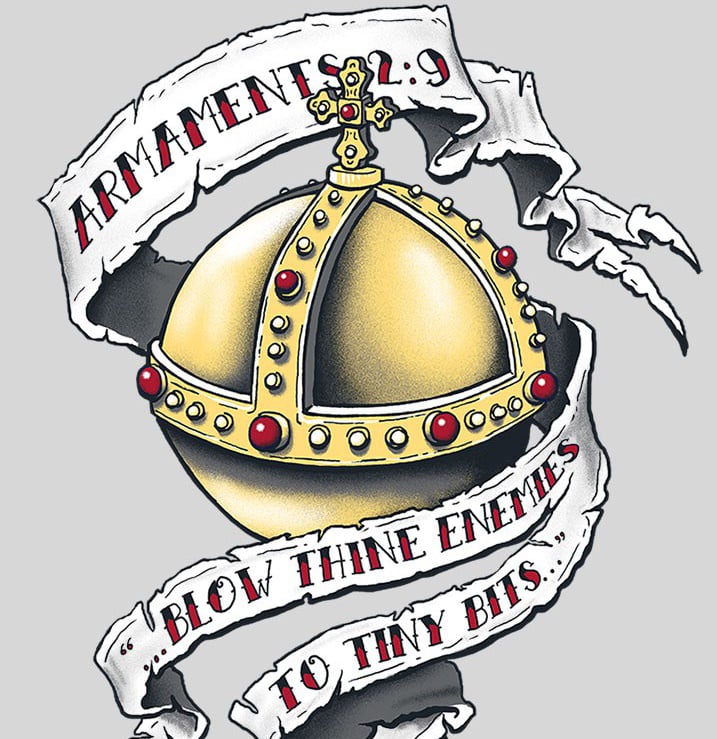That’s, what, 7% less…
Motherfuckers moving digits around hoping nobody will notice.
440 -> 400? Nah, too obvious.
440 -> 404? Greasy, let’s do that!
That’s one of the skudgiest size reductions I have ever seen. It’s also not organic. I would pick something else if anyone did that to me.
Beer not found
404… Beer not found.
Lol, the same comment, 4 seconds apart. You’re 4 seconds the senior so you win, I guess.
Great minds think alike?
And fools seldom differ.
deleted by creator
Dang it I was gonna make this same joke.
Well
404, rest of beer not found.
Originally they were going to make it 418mL but they just ended up with cans of spiked tea.
That 440 down to 404 was deliberate as well. Meant to trick the eye at a glance.
I know this is a nearly impossible task, but is anyone regularly tracking and documenting the shrinkflation in products?
That probably means that a ton of things are switching to 404ml cans, because I don’t think those are usually custom made for a single beverage.
That is such a ridiculous number, though. As if someone specifically looked for a number where you might miss that it’s different from 440 ml.
That’s exactly what they did.
404: beer not found.
Maybe they should look into making this kind of deception illegal…
This would get obliterated in court, here in Germany, and yeah, I’m glad of it. I understand that these companies are profit-driven, but using literal scam tactics is simply eroding consumer trust. These companies should want this to be generally prohibited, so they don’t have to participate in scams in order to stay competitive.
It’s a pub pint.
There are a lot of beer can sizes.Imperial, the common ones are
- 24oz (usually only VERY cheap beer)
- 19.2 oz “imperial” pints (often called stovepipes/smokestacks)
- 16oz pints (usually called tallboys, though larger sizes are ALSO often called tallboys)
- 12oz “classic”/standard cans
- and nips (8.4oz) which I don’t know the reason they’re the size they are.
However, in bar tradition, a “pub” pint is a typical size, which is what this can is – about 14oz. These happen a lot since they’re served in a shaker pint glass that LOOKS like a typical pint glass but has an extra thick bottom that makes those 2oz disappear. The commonness of this style of glass is why so much EU glassware has the mandatory 40cl line.
Metric cans come in a lot more sizes, but as I understand it the standard ones are 330ml, 440ml, and those same 568ml (19.2oz) stovepipes.
The point is, this ridiculous number is a pub pint. Why that can size exists I do not know.
Metric cans are almost always either 330 ml or 500 ml. Anything else is a novelty
375ml is very common in Australia.
Australia is the land of novelty
deleted by creator
I’ve never understood why Australian cans are unusually large compared to other countries.
A standard Schooner glass is 425ml, which means you can pour a 375ml can into one either with ice or leaving enough room for a beer with a good head.
350mL is common too - less common than 330mL though.
473ml is abundantly common in Canada because it’s the most common size used in the US (16oz)
Does any of that explain the 404? An even 400ml is very close to 14 imperial ounces. 14.078. 404 makes it further off and a weird number in any units I’ve tried coverting it to.
Nope. The 4ml diff from 400 is within a margin of error I’m sure, so this size really seems arbitrary to me. Wolfram’s language model doesn’t recognize it as some obscure unit either.
Excuse the dumb question, but what kind of ounce are we talking about?
There’s apparently an “imperial fluid ounce”, which is 28.4130625 mL.
There’s a “US customary fluid ounce”, which is 29.5735295625 mL and certainly sounds like it might be customary in the US.
But then there’s also the “US food labeling fluid ounce”, which is exactly 30 mL, and I guess, would be even more customary in US food labeling, but if it’s an even mL number, then I’m confused how we end up with such a crooked number as 404.Or is it just that there’s some regulation which says a pub-pint-sized can must be 14 oz, but for some reason, you’re allowed to be half an ounce below that (404 / 30 mL = 13.466)…?
It’s not a dumb question, but you’re presuming standards and exactness that do not exist in practice.
A pub pint is a pint glass that is deceptively smaller than a full pint, usually about 14oz. That’s all it is. This can is the same as a pub pint – both in spirit and practice – as far as I can tell.
Yeah, I am German, so we definitely take measuring (and beer) a bit too serious.
When I was younger, I learned that there was a tolerated margin of error, something like the package may say 200 mL, but it actually only contains 195 mL at times.
This absolutely makes sense in retrospect, but at the time, I was genuinely surprised that this was not something we measured at mL precision. They need to provide that whole ingredients list and nutrition table, so just measuring how much is in the package felt like the easy part.
If we start to bring US units into it, then anything goes.
1/700th of ford 150 gas tank
Not directly relevant to your post I thought your post was culturally interesting. I live in the UK, and a pub pint will ALWAYS be what you listed as imperial pints. I believe it is illegal to call it a pint and it not be that size. I’m surprised how small the American pub pints are in comparison.
Illegal in Canada too - if it’s not 20 +/- 0.5 oz, you can’t call it a pint.
Can’t say I see the word ‘pint’ at pubs very often anymore, though.
Certainly people must ask for “pints” though and if the server brings them a drink, I would take that as confirmation that they are tacitly serving pints.
And the silly thing is, a pub pint should be 568ml. A pub in the UK selling less than a full pint wouldn’t be a pub very long.
That’s because the UK uses imperial pints, a US pint is only 473 ml, and the “shaker pint” is only 414.
To make it even more fun there are US barr associations trying to claim that a pint is just a glass of beer not of any specific size, so they can use the word with a smaller glass. Fortunately most government weights and measures agencies are not exactly convinced that a pints means something different than the standard measure.
Where is this at? I’ve never seen 440ml or 440ml cans in North America. Canned drinks/beers usually come in 355ml (12 US ounces), 473ml (16oz), 500ml (16.9 oz), or 19.2 US ounces (20 British ounces aka British pint). Other less common sizes are 8oz (236ml / Red Bull) and big beer formats like 24oz and 32oz (just shy of a litre).
404ml is around 13.66 US ounces or 14.2 imperial ounces. 440ml is around 14.7 US ounces or 15.5 imperial ounces.
Usually when you get a measurement that’s not a nice round number like 500 or 750 it means it was probably converted from some other measurement standard. But both measurements seem completely arbitrary for what I assume is an English speaking country.
I looked through some antique measurements but didn’t find anything useful. It seems to be more than half a chungah, but far less than a butt.
Weight of the beer plus the can would be 1lb.
I wonder if the 404ml can is heavier to still make it 1lb.
Looks like Ontario, Canada:
https://millstreetdelivery.com/products/mill-street-cobblestone-stout
330 and 440 are standard metric can sizes. 404 is weird.
Can you give me an link to this? I have never seen 440 ml cans and Im a eurometricboi.
Might be a UK thing, it’s the standard size in multi packs. Asda
Recently did a road trip through Europe and saw loads of 440ml cans in the Netherlands and France, less so in Belgium and Germany where it seems to be mostly bottled.
Or it’s the same can, with just 404ml inside.
Edit: looking closer, not the same can. But that’ll probably happen….:/
Yeah, the Guinness pint is now 14.9 fucking ounces in the US. Relatives of mine in Ireland confirmed that if they did that shit there, they’d have another rebellion.
If I’m not mistaken, the guinness can is the same size as other US pint (16 oz) cans, but there is less beer volume because of the widget.
The widget is so nice and crunchy though.
Draft Guineas is poured with a restrictor plate to give you that thick dense head. The widget in the can is to replicate that
As someone that’s not a beer drinker… What is a widget?
deleted by creator
can also confirm that Guinness makes an awful Android launcher, like trust me don’t even try it
Very helpful, thanks. I’m glad I upgraded to Windows Vista, because now I can use the widgets!!
It’s a plastic ball with a tiny hole in it. When you open the beer, the compressed gas, nitrogen and co2, sprays out of that hole into the beer, making it creamy and frothy. Guinness isn’t meant to be carbonated like most beer, so it’s never “foamy”
Guinness has a little plastic ball in it to make it foam a certain way once opened
And it’s no longer organic!
Mill St brewery was bought by Molson (or other industrial piss maker) a few years back. Total boycott on my part.
I wrote off wicked weed in 2017. I overheard someone say they’d bought themselves back! I can’t find any information on that, but I did find this. I thought I’d share.
https://www.newsobserver.com/living/food-drink/article275669121.html
Are they outside of Asheville? Wicked weeds? Because I know they got bought by Budweiser and Asheville was up in arms
That’s the really cheaper part
What is 440ml to begin with? A propper beer in a can is 500ml, a propper beer in a bottle is 330ml or 500ml. Everything else is a scam.
A lot of imported beers come in 440 ml cans. US ones in particular. But I agree that it feels scammy, because we expect them to be 500 ml.
Wouldn’t you expect them to be like 470 ml ~16 oz? 500 us closer to 17, and 440 is a strange ~15 odd ml
Someone said in another comment that 440 ml is the default multipack can for the UK and that can plus contents add up to 1 lb that way. I don’t know if this is true. I could see US beer imported via UK being a thing though.
Edit: And if you mean whether I would expect 470 ml over 500 ml, then no. 500 ml is very much the European standard can.
I specifically meant imports, as they tend to use the same shelving and cooler infrastructure for the cans we have. But I don’t seek out a lot of imports myself.
US measures in ounces, we have three standard beer sizes: 12oz, 24oz and the infamous 40oz. Bars will sell 16oz draught beer, no one is really sure where that came from and not all bars sell them.
16oz is a pint and most US bars do serve drafts that size… And I’m pretty sure it’s a carry over from the UK where it’s always been common to order a pint of beer.
“Imperial pints” in the UK are actually 20oz interestingly enough though.
Seems like they typically get larger standard sizes of beer than us and I think we should follow their lead.
That’s interesting because most canned and bottled beers in the US are 12 ounces / 354 ml …
Lolol that 440 was from the previous round of shrinkflation
In Norway, we have a law that says grocery stores have to give two prices, one for the product, and one for the product in a compareable size, like 1litre or 1kg for easy comparison. This safeguards againt shrinkflation.
In America grocery stores pretend to do this but switch the units on nearby items to confuse consumers. (e.g. name brand will have price/oz, store brand will be price/g)
Probably happens elsewhere too, I like to think it’s malicious but maybe there’s a reason.
It’s malice.
Shrinkflation still happens, you just get to watch two numbers go up now.
The whole idea by shrinkflation is to hide it from the consumer. By having compareable size standard, you see them doing this. So, no, in this example you only see one price go up. The item price stays the same (since the item size/ammount went down), but the comparable price went up AND you can see it.
This is true but do you remember the liter price you paid for laundry detergent or do you remember that you bought it for $14?
I’d wager that most people are in the latter, even if they are completely informed of shrinkflation.
For me the liter price I use when trying to figure out if a sale of the 1 gallon is actually cheaper than the 2 gallon normal price (or whichever units of measure for an item).
Some stores in the USA will list price per oz on the whenever applicable, which is nice, but sadly just a store policy not any regulation.
It also depends on state legislature I believe. There was a customer that came up to me to tell me our signage was incorrectly detailing the price pr. oz or the product oz. (can’t remember which now) and I never quite understood why he cared so much. But apparently businesses can get fined or dinged per incorrect signage they have so?
This seems to be everywhere in Canada. Though annoyingly some products won’t share the same unit. Toilet paper tends to either be shown per roll or per foot and makes it difficult to compare.
Aaand Mill Street is now boycotted.
It’s just part of the vast near-monopoly of the beer market that is AB InBev. https://en.wikipedia.org/wiki/Mill_Street_Brewery
If you want to boycott them, only buy beer from a small time brewery you know isn’t owned by them.
I’m just going to plug the brewers association here. Very good site to look up whether a brewery is independent or owned by a big conglomerate like AB InBev or MillerCoors.
One of our local breweries sold to Lion (an Australian company), which is a subsidiary of Kirin (a Japanese company), back in 2021. That site still says they’re ‘regional’ and they have a stamp that they’re part of the Brewer’s Association.
So YMMV.
Yes support us small brewers!
I brew 50L for $145-155 Cad
Their brewery was a fun tour, the brew master was fantastic. Pretty good burger too.
Now it’s bought up by a large conglomerate so while the organic is still nice, there are much better local options available.
440 to 404oz. Penny pinching is a weird part of capitalism.
Milliliters. I understand you probably did that reflexively given the print size and location are exactly the same as where a US can would list ounces.
Damn and I thought they had the same amount and I was ready to call shenanigans. I’m still ready to call shenanigans but not for that reason. That’s so deceptive.
“That’s not what I meant whan I said to hold my beer.”
I’m still furious about my tea box. Purchased 1 month apart and it went from 25 bags/box to 20 bags/box with the price increases about 16-18% (based on my head math, can’t bother to calculate the exact amount)
It used to be organic but they took the carbon out?














